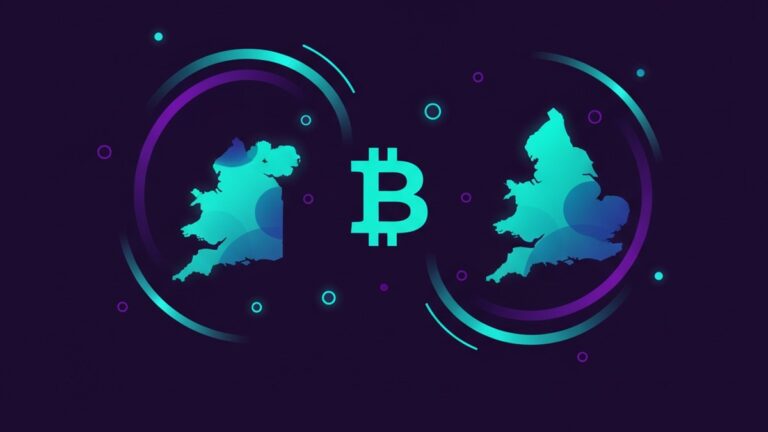In recent weeks, the cryptocurrency world has been buzzing with rumors and claims suggesting that the United Kingdom and the Netherlands are amassing significant Bitcoin reserves. These assertions, which have spread like wildfire across social media platforms and cryptocurrency forums, have captured the imagination of many in the financial community. However, as excitement grows, so does the need for caution and careful consideration of the facts.
A Viral Sensation
The notion that major Western governments are quietly accumulating Bitcoin reserves has sparked widespread speculation. Proponents argue that such a move could signal a monumental shift in how traditional financial systems view cryptocurrencies. The viral nature of these claims has only fueled further interest, with many eagerly discussing the potential implications for both the crypto market and global economies.
The UK and the Netherlands, known for their robust financial sectors and forward-thinking approaches to technology, seem like plausible candidates for such initiatives. Enthusiasts point to recent developments in both countries, such as the UK’s exploration of a digital pound and the Netherlands’ proactive stance on fintech innovation, as indicators that these governments might be keen to delve deeper into the world of digital currencies.
Scrutinizing the Claims
Despite the excitement, these bold claims warrant a healthy dose of skepticism. Experts caution against taking these rumors at face value without substantial evidence. For one, there has been a conspicuous lack of official statements or confirmations from either the UK or Dutch governments regarding any such Bitcoin reserves.
Furthermore, the logistics of accumulating a significant amount of Bitcoin without drawing attention are complex. The Bitcoin market, while substantial, is still relatively small compared to traditional financial markets, making any large-scale acquisition potentially disruptive and easily noticeable. Thus, the feasibility of such secretive government actions remains questionable.
Potential Motivations and Benefits
If these claims were to hold any truth, the motivations behind such moves could be multifaceted. Governments could view Bitcoin as a hedge against inflation, a diversification strategy to bolster national reserves, or a step towards embracing digital assets as part of a modernized financial infrastructure.
For the crypto community, a government-backed Bitcoin reserve could serve as a major endorsement of the digital currency’s legitimacy and potential. It might encourage other nations to consider similar strategies, potentially leading to increased global adoption and integration of cryptocurrencies into mainstream financial systems.
Skepticism and Challenges
Critics argue that the volatility of Bitcoin and other cryptocurrencies makes them unsuitable for government reserves. Traditional reserve assets like gold and foreign currencies offer stability and predictability—traits that Bitcoin, with its notorious price swings, lacks. This inherent volatility could pose significant risks to a nation’s financial stability if Bitcoin were to become a substantial part of its reserves.
Additionally, the regulatory frameworks surrounding cryptocurrencies are still evolving. Governments would need to navigate complex legal and regulatory landscapes to incorporate digital assets into their official reserves, necessitating significant bureaucratic and legislative efforts.
The Bigger Picture
While the current claims may be exaggerated, they underscore the growing interest in cryptocurrencies among traditional financial institutions and governments. The dialogue around digital currencies is shifting from skepticism to curiosity and, in some cases, cautious embrace.
The UK’s consideration of a digital pound and the Netherlands’ fintech initiatives demonstrate a willingness to explore and adapt to new financial technologies. Even if the current claims about Bitcoin reserves prove unfounded, they reflect a broader trend of increasing engagement with the crypto world.
Conclusion: Proceeding with Caution
As excitement continues to swirl around the idea of UK and Dutch Bitcoin reserves, it’s essential to approach these claims with a balanced perspective. While the rumors highlight the potential for cryptocurrencies to play a more significant role in global finance, they also serve as a reminder of the need for thorough scrutiny and due diligence.
For now, the claims remain speculative, awaiting concrete evidence or official confirmation. Whether or not these rumors hold any truth, they contribute to the ongoing conversation about the future of cryptocurrencies and their place in the world economy.
As the situation develops, the crypto community and financial experts alike will be watching closely, eager to see how governments and institutions navigate this new frontier. Whether this marks the beginning of a new era of digital finance or simply a viral sensation that fizzles out, only time will tell.

Steve Gregory is a lawyer in the United States who specializes in licensing for cryptocurrency companies and products. Steve began his career as an attorney in 2015 but made the switch to working in cryptocurrency full time shortly after joining the original team at Gemini Trust Company, an early cryptocurrency exchange based in New York City. Steve then joined CEX.io and was able to launch their regulated US-based cryptocurrency. Steve then went on to become the CEO at currency.com when he ran for four years and was able to lead currency.com to being fully acquired in 2025.


